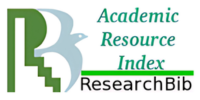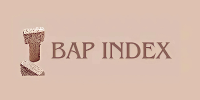ISSN- 2584-0290
Reviewer Policy
The International Journal of Research Development and Technology (IJRDT) upholds a meticulous review process to ensure the publication of high-quality research. Our policy is structured to maintain fairness, transparency, and academic rigor.
1. Initial Evaluation:
Submitted manuscripts are first reviewed by the editorial team to verify their relevance to the journal's focus and adherence to submission guidelines.
Articles not meeting the journal's ethical, technical, or formatting standards will be sent back to the authors for revisions.
2. Peer Review Methodology:
Double-Blind Review: Both the authors and reviewers remain anonymous to each other to ensure unbiased evaluations.
Each manuscript is reviewed by at least two experts in the relevant subject area to provide objective feedback.
3. Selection of Reviewers:
Reviewers are chosen for their expertise in the topic of the manuscript and their proven track record in research.
Efforts are made to match manuscripts with reviewers who can provide fair, informed, and comprehensive assessments.
4. Review Criteria:
Manuscripts are assessed based on the following aspects:
Originality: Whether the research introduces new knowledge or perspectives.
Relevance: The alignment of the manuscript with IJRDT’s scope and its contribution to the field.
Methodology: Appropriateness and clarity of the research design and execution.
Structure and Presentation: Logical organization, clarity of language, and adherence to journal guidelines.
References: Proper citation of credible and recent literature.
5. Review Timeline:
The standard review process is completed within 4-8 weeks from submission.
Authors will be informed of any delays in advance to ensure clear communication.
6. Editorial Outcomes:
Following the peer review process, the editorial team will provide one of the following decisions:
Accept: The manuscript is approved with minimal or no changes required.
Revise: Authors are asked to address minor or major revisions before final acceptance.
Reject: The manuscript does not meet the publication criteria. Constructive feedback will accompany all decisions to support the authors in improving their work.
7. Appeals Process:
Authors may request a review of editorial decisions by submitting a written appeal. Appeals are carefully reviewed by the editorial board to ensure fairness and accountability.
8. Ethical Standards:
Plagiarism Prevention: Manuscripts are checked using plagiarism detection software to ensure originality. Submissions with high similarity scores will not be considered.
Conflict of Interest: Authors, reviewers, and editors must disclose any potential conflicts to uphold transparency and impartiality
9. Post-Publication Engagement:
The journal promotes scholarly dialogue by encouraging constructive discussions on published articles. Authors and readers are welcome to share comments and critiques, fostering a collaborative academic environment.
At IJRDT, our review process reflects our commitment to advancing knowledge while ensuring integrity and fairness in scientific publishing. We are dedicated to supporting authors and contributing to global research development.







